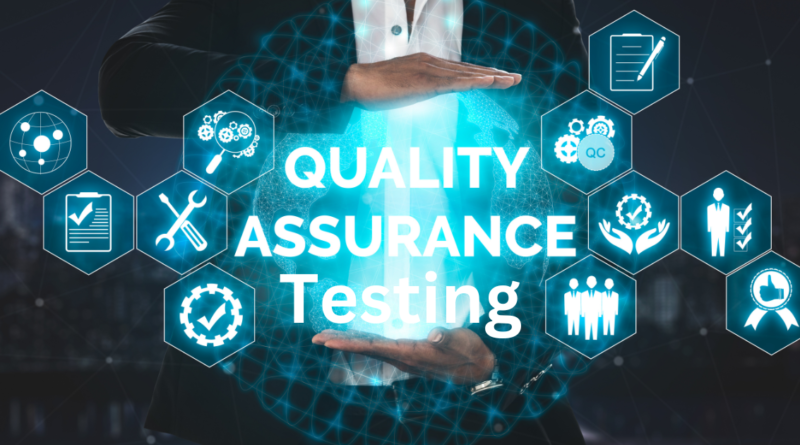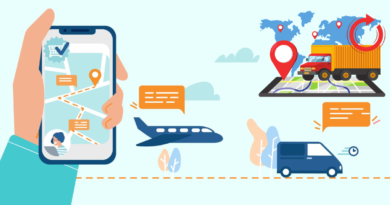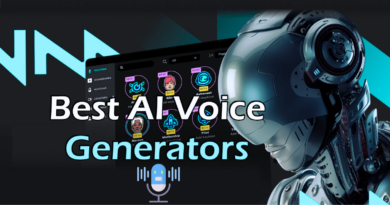Which Is The Best AI For QA Testing?
Which is the best AI for QA testing As a quality assurance professional, I have witnessed first-hand how Artificial Intelligence (AI) is revolutionizing quality assurance testing. AI integration has revolutionized software testing, enabling organizations to deliver higher-quality products more quickly. In this comprehensive guide on artificial Intelligence in quality assurance testing, I will explore its benefits and factors to remember when choosing an AI solution and compare leading AI solutions implementation strategies, strategies for overcoming adoption hurdles and future trends considerations.
Understanding AI in QA Testing
Artificial Intelligence, commonly abbreviated AI, refers to machines mimicking human intelligence processes such as learning, reasoning, and self-correction. Within QA testing contexts, AI facilitates the automation of repetitive and time-consuming tasks like test case generation, execution and result analysis; machine learning algorithms use AI to detect patterns, anomalies or potential defects in software, which improves accuracy and efficiency during testing process; predictive analytics capabilities allow QA teams to anticipate issues before they negatively affect end-users.
Power of AI In QA Testing
AI in QA testing has opened the doors for advanced techniques like natural language processing (NLP) and computer vision, enabling the analysis of unstructured data sets and graphic user interfaces. By tapping into its power, QA testing can go beyond traditional limitations, resulting in increased test coverage, faster time to market and increased software reliability. As organizations embrace digital transformation efforts, AI becomes even more essential in providing robust applications to customers.
Benefits of AI in QA Testing
Artificial Intelligence (AI) in QA testing offers numerous advantages that significantly boost efficiency and effectiveness. AI-driven test automation enables rapid execution of test cases across diverse platforms and configurations, speeding release cycles and increasing overall productivity. Meanwhile, predictive analytics allows QA teams to identify high-risk areas within applications for targeted testing efforts and risk mitigation strategies.
AI can offer organizations in QA testing some tremendous advantages, notably its capacity to self-learn from testing data, continually improving the accuracy and effectiveness of test scenarios. Additionally, AI facilitates the generation of intelligent test cases based on historical usage data to provide complete test coverage and robust validation of software functionality. By employing this powerful technology, organizations can achieve unparalleled levels of test automation, allowing their QA teams to focus on strategic testing activities that require human intuition and creativity instead.
Factors to Consider When Choosing AI for QA Testing
When evaluating artificial intelligence solutions for quality assurance testing, several critical considerations are necessary to select an effective and suitable platform. Scalability and compatibility with existing testing frameworks and tools are essential to achieve seamless integration and interoperability; furthermore, an AI solution’s ability to adapt quickly to changing technology stacks, diverse application architectures and dynamic testing requirements is of utmost importance for long-term sustainability and value creation.
Accuracy and Reliability
AI-driven test automation needs to be assessed carefully in terms of its accuracy and reliability, such as precision of defect detection and false positive rates, so as not to compromise testing outcomes. Transparency and interpretability of AI test results are also of utmost importance – they enable QA teams to understand why certain results appear and make informed decisions accordingly. Likewise, easy use and accessibility for non-technical stakeholders such as business analysts or product owners are essential in democratizing testing processes while encouraging collaboration across cross-functional teams.
Comparison of Leading AI Solutions for QA Testing
As AI for QA testing solutions rapidly advances, several leading solutions have emerged with distinct capabilities and value propositions. Comparing these solutions is critical to selecting one that aligns best with an organization’s specific needs and objectives; dimensions considered during comparison include test automation capabilities, predictive analytics capabilities, adaptability across technologies, scalability integration into existing testing frameworks, interpretability of test results, and overall ease of use.
TestCraft
TestCraft stands out among AI solutions for QA testing with its AI-driven test automation capabilities and intuitive visual test creation interface, making it a go-to choice among quality assurance teams for creating and executing tests without needing to code while taking advantage of advanced machine learning algorithms to increase coverage and accuracy of tests run. Another notable contender in the arena of AI for QA testing is Appvance, offering AI-powered test generation, execution, and self-healing features which empower organizations to achieve unparalleled levels of test automation and reliability.
Mabl
Mabl, an AI-powered testing solution, excels at predictive analytics and adaptive test automation for proactive defect detection and continuous learning from testing data. Functionize stands out for its superior NLP/ML abilities, allowing it to interpret natural language test scenarios and automate complex test cases effortlessly. Finally, Testim.io offers a seamless and user-friendly AI-driven testing experience.
5 Best AI for QA Testing
Finding the most appropriate artificial intelligence (AI) platform requires careful examination and comparison in an increasingly complex AI testing ecosystem. After extensive evaluation and investigation, these five AI solutions have emerged as leading candidates to provide organizations with advanced QA testing capabilities.
1. TestCraft
Utilizing AI-driven test automation and visual test creation capabilities, TestCraft equips organizations to achieve comprehensive test coverage and accelerate testing cycles without needing extensive coding expertise.
2. Appvance
With AI-powered test generation, execution, and self-healing capabilities, Appvance helps organizations proactively detect defects while continuously increasing test reliability.
3. Mabl
By offering predictive analytics and adaptive test automation capabilities, Mabl enables quality assurance teams to anticipate potential issues before testing while continuously learning from testing data to ensure robust and dependable test outcomes.
4. Functionize
With its cutting-edge NLP and machine learning technologies, Functionize enables seamless interpretation of natural language test scenarios and automation of complex test cases.
5. Testim.io
Well-known for its intelligent test case generation and self-maintenance features, Testim.io offers an uncomplicated yet AI-driven testing experience to organizations seeking maximum test automation levels. It can reduce the manual effort needed for repetitive test automation by providing user-friendly AI-driven test case generation and maintenance features for a seamless AI-driven test experience.
Implementing AI for QA Testing in Your Organization
Successful AI implementation for QA testing within an organization requires a strategic and collaborative approach incorporating several key considerations and best practices. Aligning AI initiatives with testing strategy objectives and business objectives is integral to ensuring tangible value from AI investments; engaging cross-functional stakeholders such as QA teams, developers, business analysts and product owners in the AI adoption process promotes collaboration while considering diverse perspectives during the implementation process.
Investment In Training And Upskilling Programs
Investment in comprehensive training and upskilling programs for QA professionals is essential to providing them with the necessary skills and expertise to utilize AI tools effectively. Adopting a gradual and iterative approach to adopting AI solutions – starting from pilot projects and proof of concepts – allows organizations to evaluate the efficacy of these solutions against real-world feedback while setting clear metrics/KPIs such as test coverage rates, defect detection rates and time-to-market acceleration rates can enable organizations to measure its value and ROI more easily.
Overcoming Challenges in Adopting AI for QA Testing
Although AI in QA testing provides significant benefits, organizations often encounter barriers when adopting it. One such challenge is resistance to change and fear of job displacement among QA professionals due to AI’s automation capabilities. To address this hurdle, organizations must emphasize AI as an augmentation rather than a replacement tool, emphasizing its complementary role in helping teams focus on strategic and high-value testing activities.
AI Solutions For Quality Assurance
Adopting AI solutions for quality assurance testing presents one major hurdle – the difficulty of integrating these solutions with existing testing frameworks and tools, raising interoperability and scalability concerns. Organizations can address this by working closely with AI solution providers and drawing upon their expertise to develop robust integration strategies that align with their technology landscape. In addition, encouraging continuous learning and experimentation as part of an organization-wide culture of continuous improvement through QA teams’ engagement in AI as an enabler of innovation and efficiency will aid the smooth adoption and integration of AI solutions into any organization.
Future Trends in AI for QA Testing
Artificial Intelligence in Quality Assurance Testing will continue its impressive trajectory of advancement and innovation, revolutionizing how software is tested and validated. One trend worth keeping an eye on is the convergence between AI and DevOps practices, enabling seamless integration of AI-driven testing into continuous integration/deployment pipelines; this enables organizations to achieve unprecedented testing velocity and reliability.
AI in Autonomous Testing
An increasingly prevalent trend is the ubiquity of AI-driven autonomous testing. AI algorithms automatically design, execute, and adapt test scenarios based on changing application changes and usage patterns. This paradigm allows organizations to achieve continuous validation and assurance of software quality while reducing manual intervention and shortening feedback loops.
Furthermore, democratizing AI for quality assurance testing through intuitive, user-friendly AI tools accessible to non-technical stakeholders fosters collaboration and transparency across cross-functional teams, enhancing overall quality assurance processes.
Conclusion
Artificial Intelligence represents a revolutionary breakthrough in software quality assurance testing, enabling organizations to achieve unprecedented levels of test automation, predictive analytics and reliability. Organizations can unlock the full potential of AI to enhance their testing capabilities by understanding its benefits, considering key criteria when selecting solutions, comparing leading platforms and selecting suitable AI solutions for testing QA tests, developing AI strategies, overcoming adoption hurdles and anticipating future trends.
As AI in QA testing rapidly evolves, adopting it is an invaluable way of speeding up software delivery while meeting users’ changing expectations in this digital era. AI-driven testing speeds software delivery faster and ensures robust applications meet these evolving requirements.
Implementing AI for quality assurance testing is more than just technological progress; it is a strategic imperative for organizations seeking to deliver high-quality software quickly.
Organizations can place themselves at the forefront of innovation and excellence in software quality assurance by selecting and adopting the best AI solutions available for testing purposes and taking a comprehensive approach to AI implementation. AI continues to revolutionize software quality assurance testing; organizations that take full advantage of its transformative powers will undoubtedly provide exceptional user experiences while driving sustainable business success.




